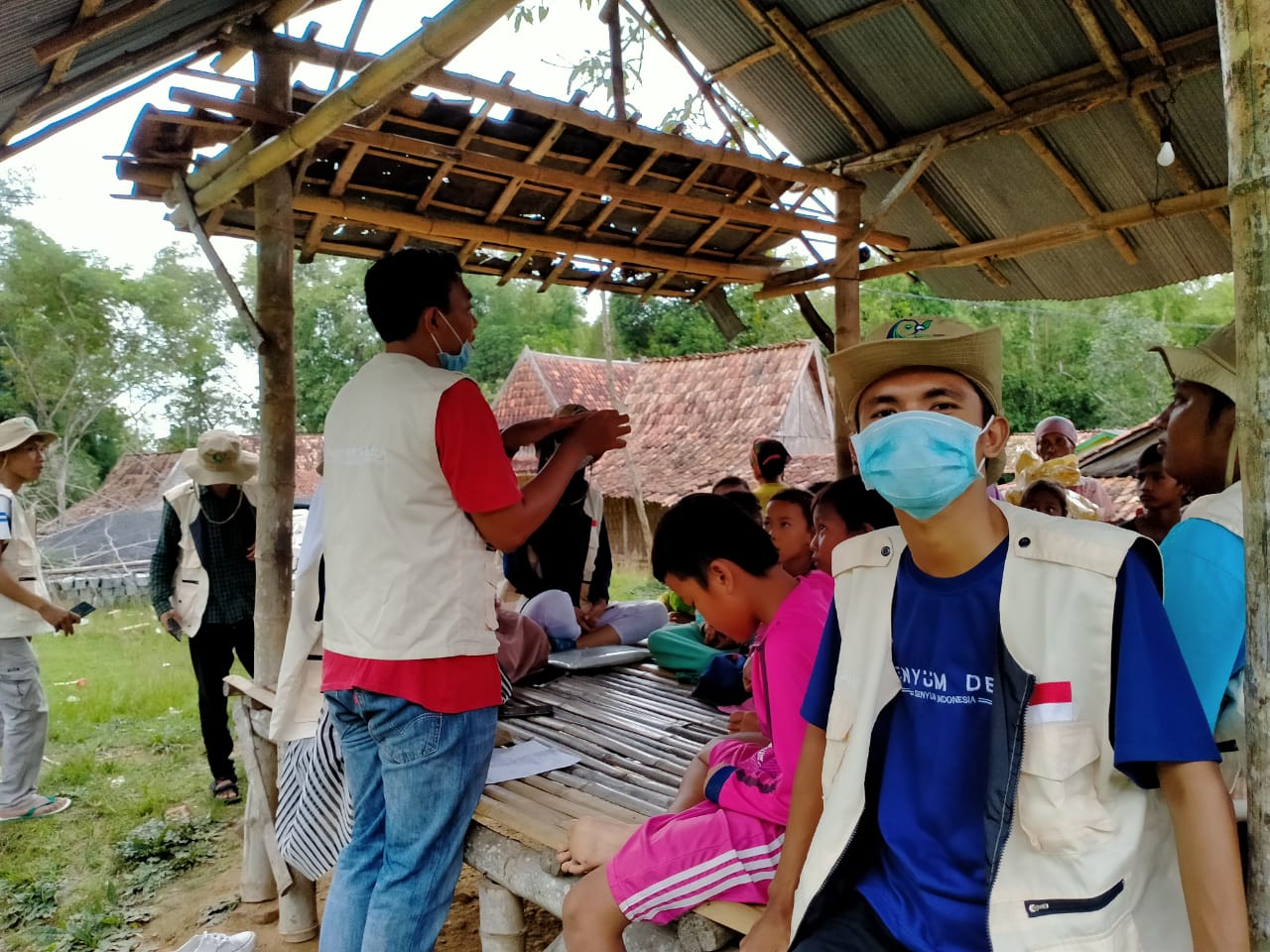UNAIR NEWS – Indonesia is an archipelagic country whose most areas are still untouched by adequate and advanced infrastructure development. For example, not all regions have adequate internet and electricity access.
During the Covid-19 pandemic in Indonesia, one aspect of life that was affected was education. Formal education that should be inclusive and public turns into a private sector that is exclusive to 3T regions (Disadvantaged, Frontier and Outermost Regions) which must also implement Distanced Learning (PJJ).
Before the introduction of PJJ, proper education for 3T areas or remote areas was difficult. Lately, education in big cities began to run online classes easily. Device ownership and smooth internet access have become advantages in running PJJ.
In contrast to big cities, according to Abdul Rozak, founder of Senyum Desa Indonesia, the situation in remote areas is very alarming. As the case in Tenggher Village, Banjar Village, Kedungdung Subdistrict, Sampang Madura, which is one of villages his organization supports.
Zaki said that the online education system is very difficult to be implemented in the rural areas. During the pandemic, everyday, village children only played, there were no learning activities or other activities.
“Reciting Koran may proceed as usual. In rural areas there is no pandemic. But the schedule, the pattern of life have changed, the polarization of life changed. There is no teaching and learning activities there, there is no knowledge gained, which is usually obtained at school, “said alumnus of Faculty of Law (FH) Universitas Airlangga (UNAIR).
To overcome this problem, he invited Senyum Desa volunteers to be proactive. They went and educated village children, lift up their morale to prevent stress and make them feel happier in learning with fun methods.
According to him, learning media facilities became the main obstacle because the media is used as tool for children to have positive activities.
“For example, we volunteers invite them to play sports such as badminton, soccer and others. However, we are not qualified to procure sports equipment. So we only used what we have, “he said.
The other obstacle for volunteers is the difficult access to reach their area. The volunteers needed hours to reach the village due to poor road condition.
With such circumstances, solutions are needed. According to him, the best solution is to promote informal education facilities such as learning huts, and reading corners and volunteers running these activities still obey the existing health protocols.
“And also to promote the world of volunteerism, volunteers must be moved to the villages to pick up those who have not been reached by learning media from the existing infrastructure. With the synergy of the entire community and the government, of course, by moving the youth as agents of change and inseparable part to continue to look after and care for the nation’s next generation, “said the alumnus from 2015 class.
Zaki also gave a description of the remote villages condition during the pandemic. Not all corners of the village have electricity, and not all of the villagers have a steady income. Pandemics hit the economy of the citizens and affected the education of children.
“So the economic cycle stops, activities stop, and we can see the spirit of life with mutual cooperation. But when all wheels are stopped, what can we do together,” he said.
Zaki invites all communities, especially the younger generation to visit remote villages while obeying health protocols, to see the state of the nation’s successors.
“The real face of Indonesia is not the glitter of capital or metropolitan of Surabaya. But the real face of Indonesia is the smiles, hospitality, and also the laughter of the villagers, “he concluded. (*)
Author: Asthesia Dhea Cantika
Editor : Binti Q. Masruroh





